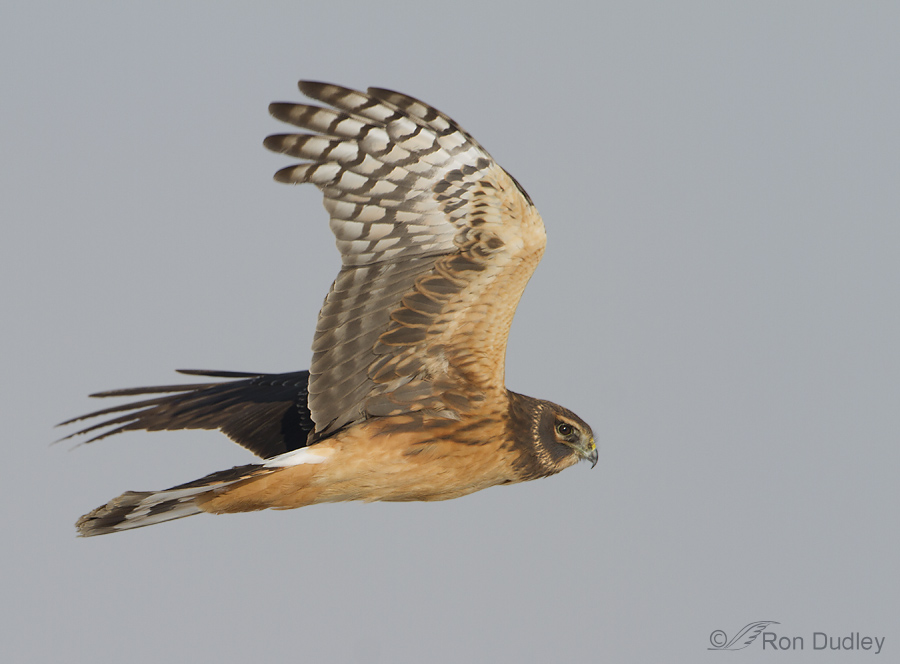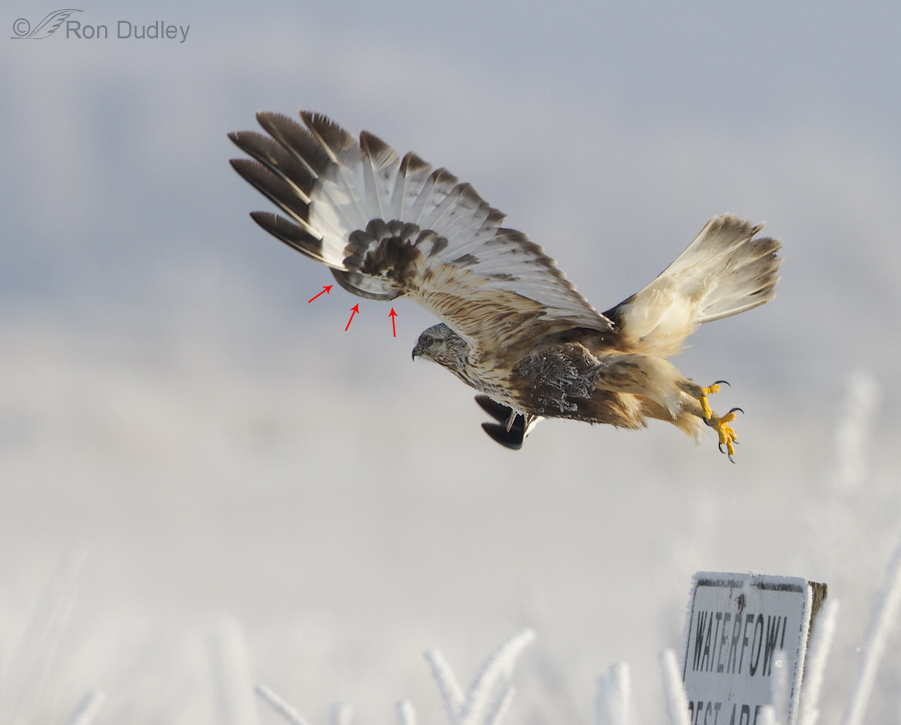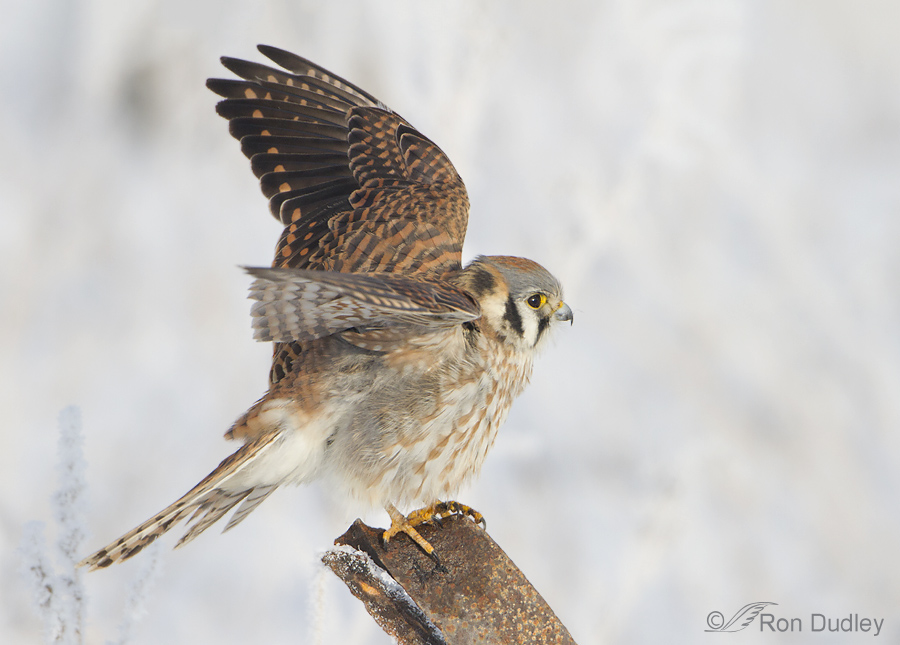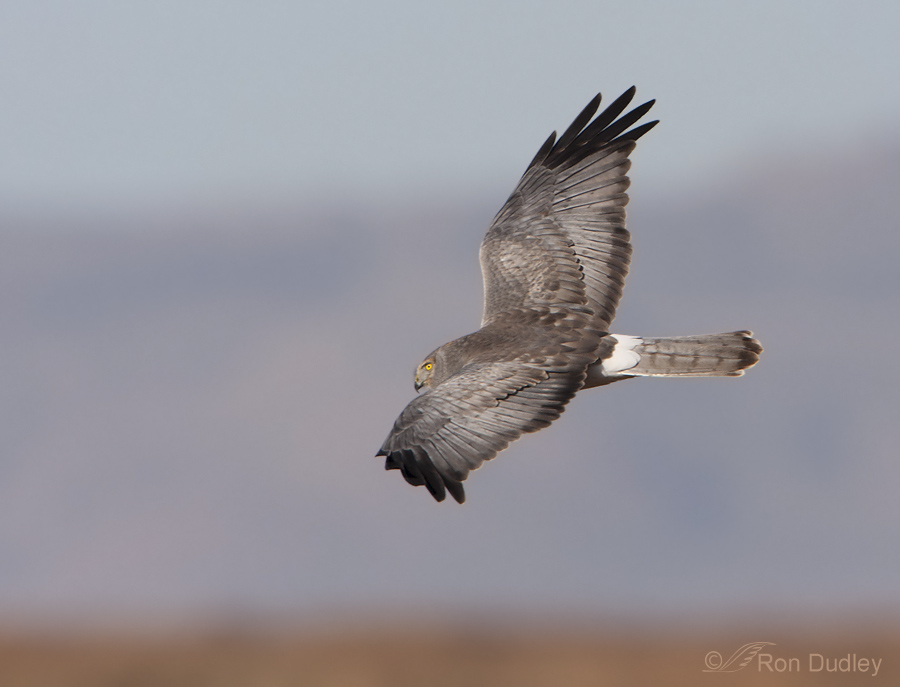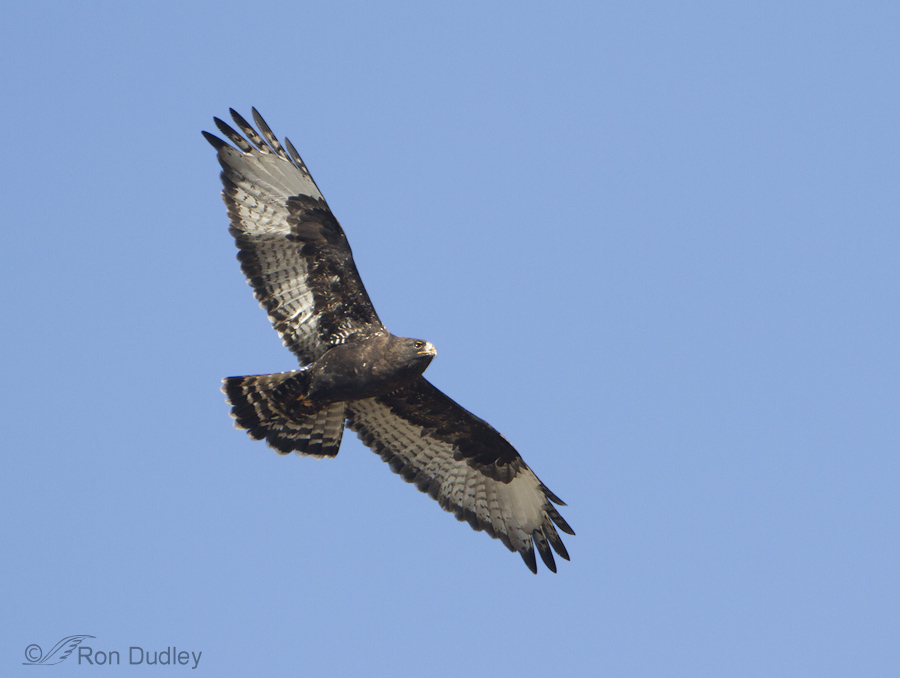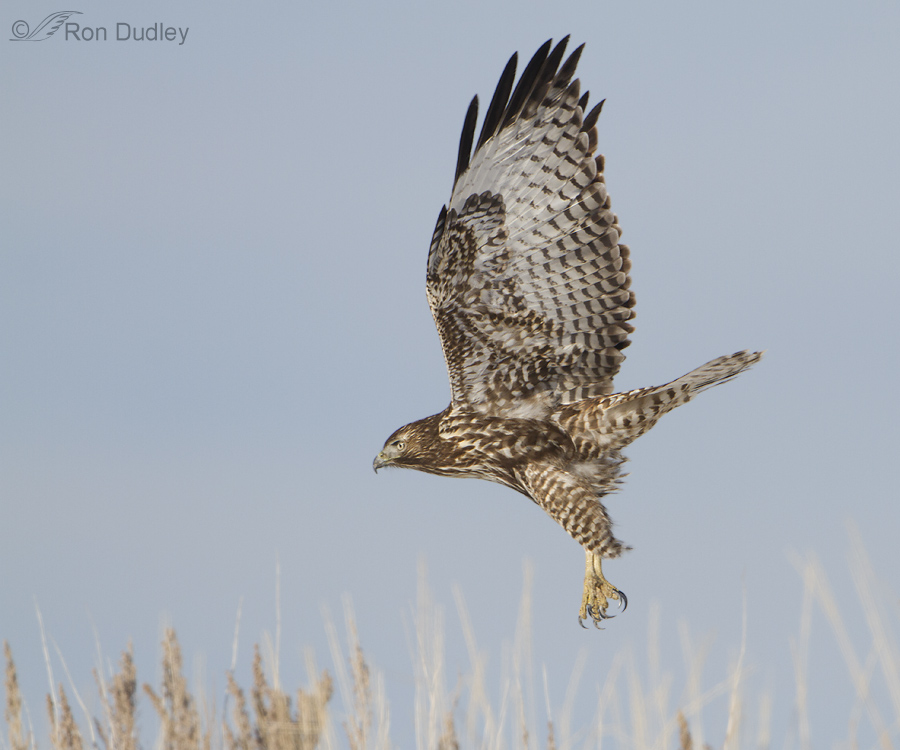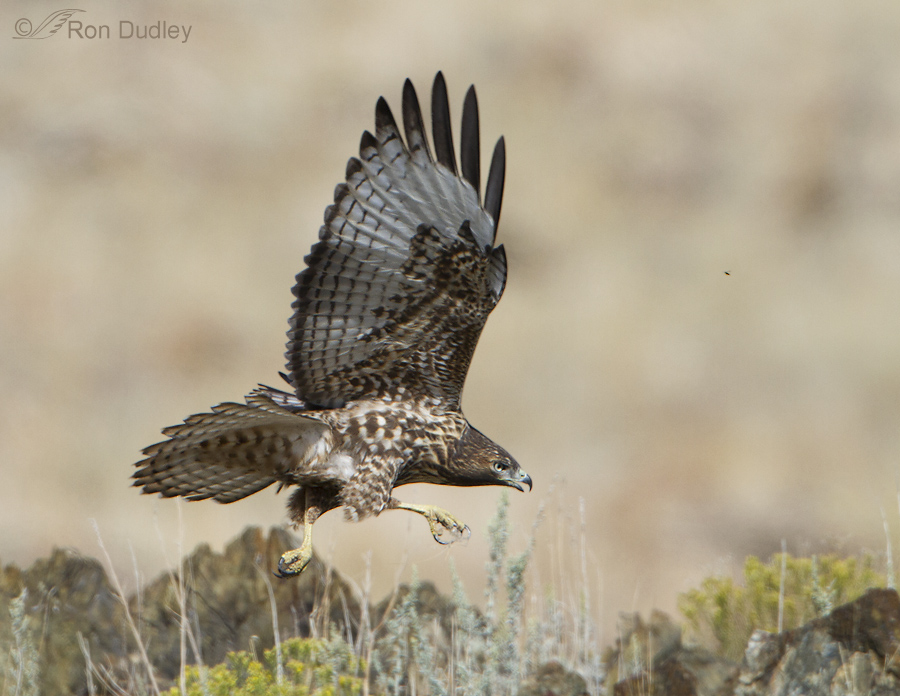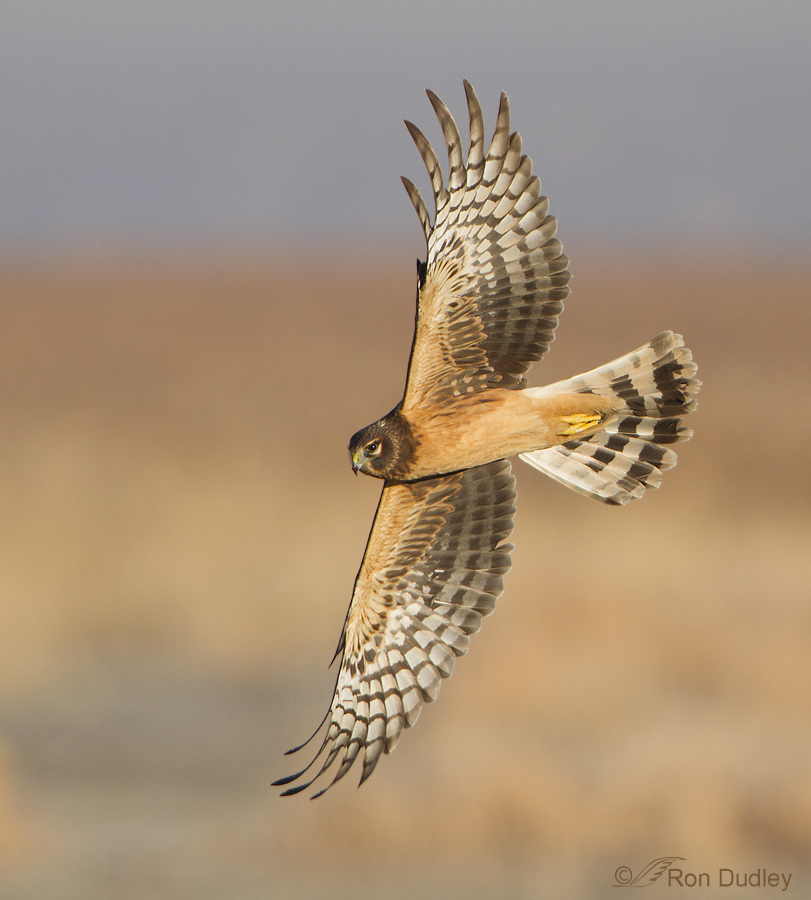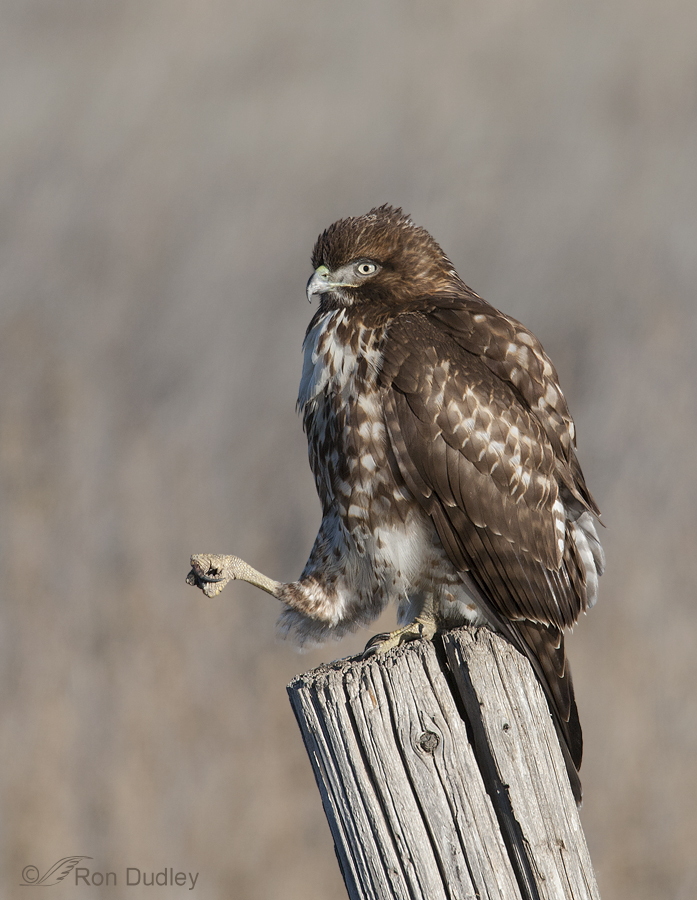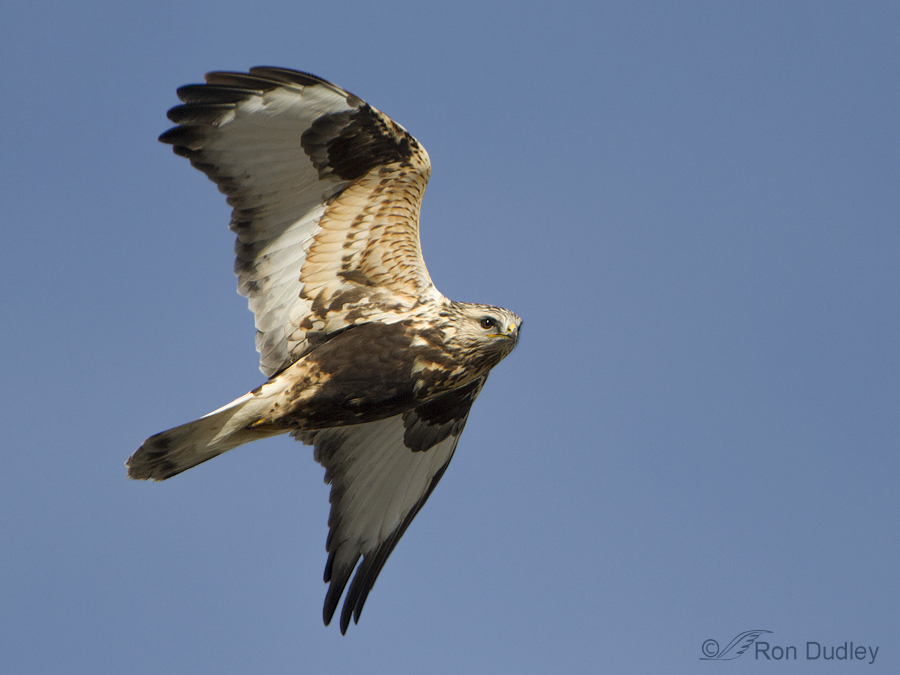Category: Diurnal Raptors
A Different Look At The Alula (bastard wing)
Rust On Rust – Female American Kestrel
Male Harrier In Flight On A Four Layered Background
Rough-legged Hawk In A Frosty Wonderland
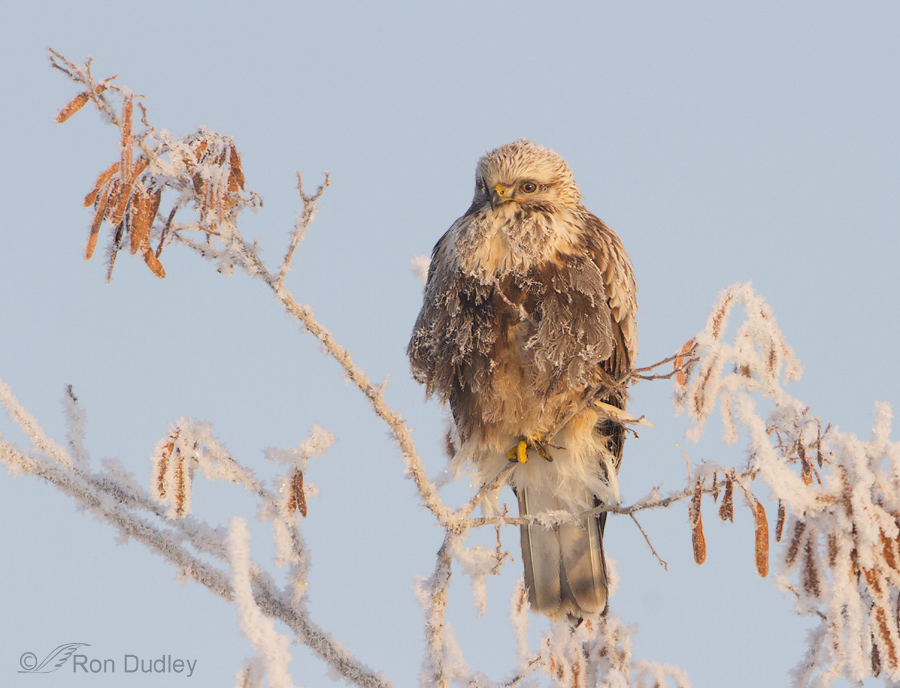
During winter, photography in the valley of the Great Salt Lake can be difficult at best due to frequent inversions that trap fog and smog in the low-lying areas and that especially includes the marshes near the lake. These inversions often last for days or even weeks and the fog and smog get progressively worse each day. But the fortunate result for photographers is the thick hoarfrost that blankets everything in the vicinity of the lake if and when the fog burns off during the day.
Dark Morph Rough-legged Hawk
A Red-tailed Hawk And Opportunities Missed
Rough-legged Hawk Hunting Technique
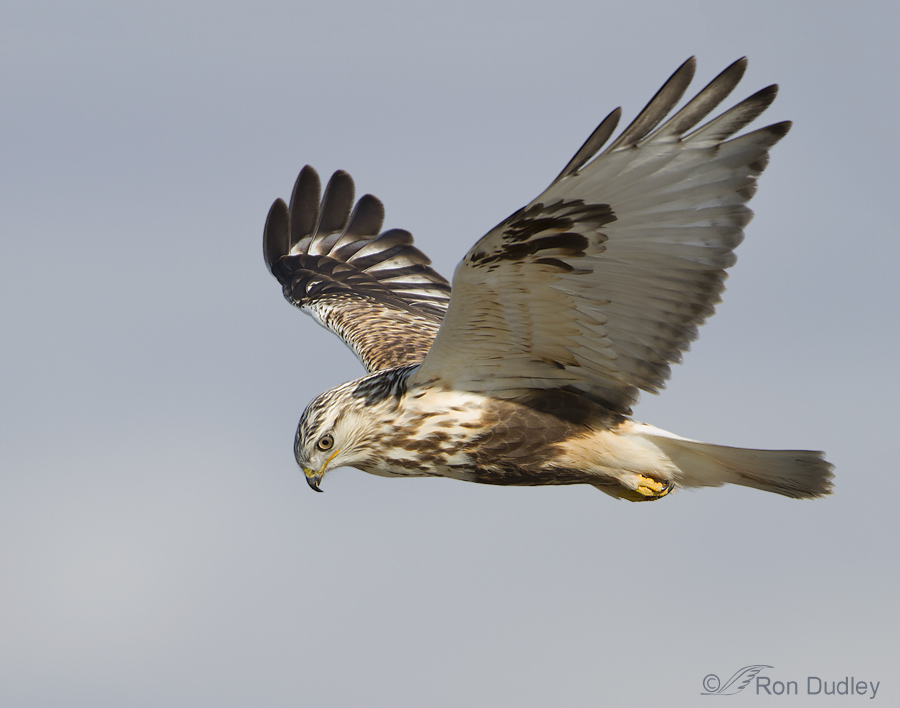
Like some other buteos, depending on conditions the Rough-legged Hawk may hunt from the air using flapping/gliding flight or from an elevated perch but their tendency to hunt in flight goes up significantly with increasing wind speed. This makes sense because hovering in the wind requires less energy than flapping flight.
Juvenile Red-tail Scratching An Itch In Flight
Northern Harrier Flight Sequence
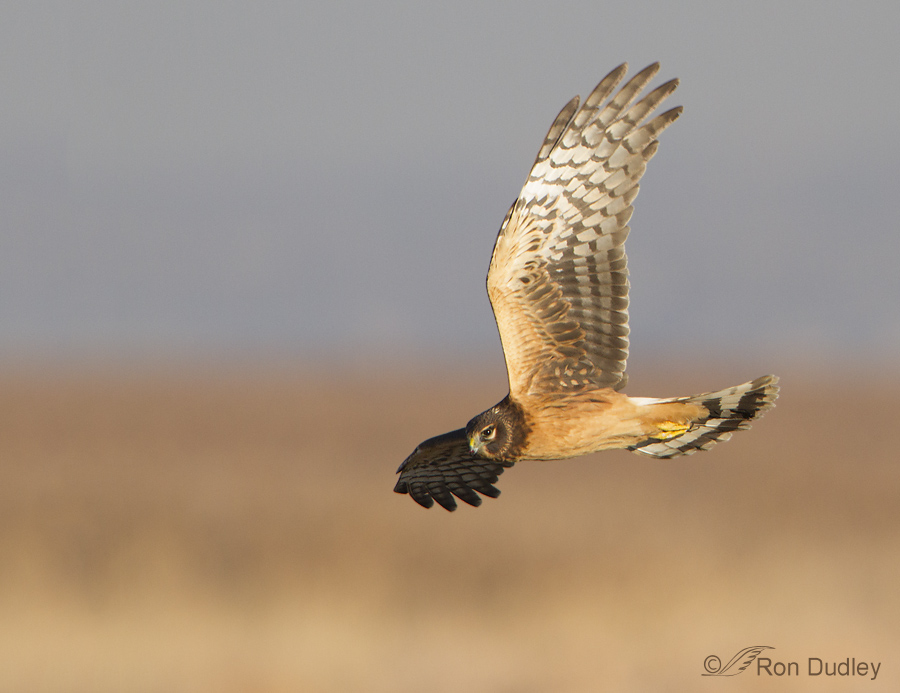
Eight days ago I photographed a Northern Harrier as it flew toward me at an angle and then banked away. The following day, because of time constraints and computer issues I posted only a single shot of the banking maneuver but now I wish I had posted the entire flight sequence of four images. With your indulgence for posting the same image twice I’ll do just that this morning.
Female Kestrel – A Twisting, Turning Take-off
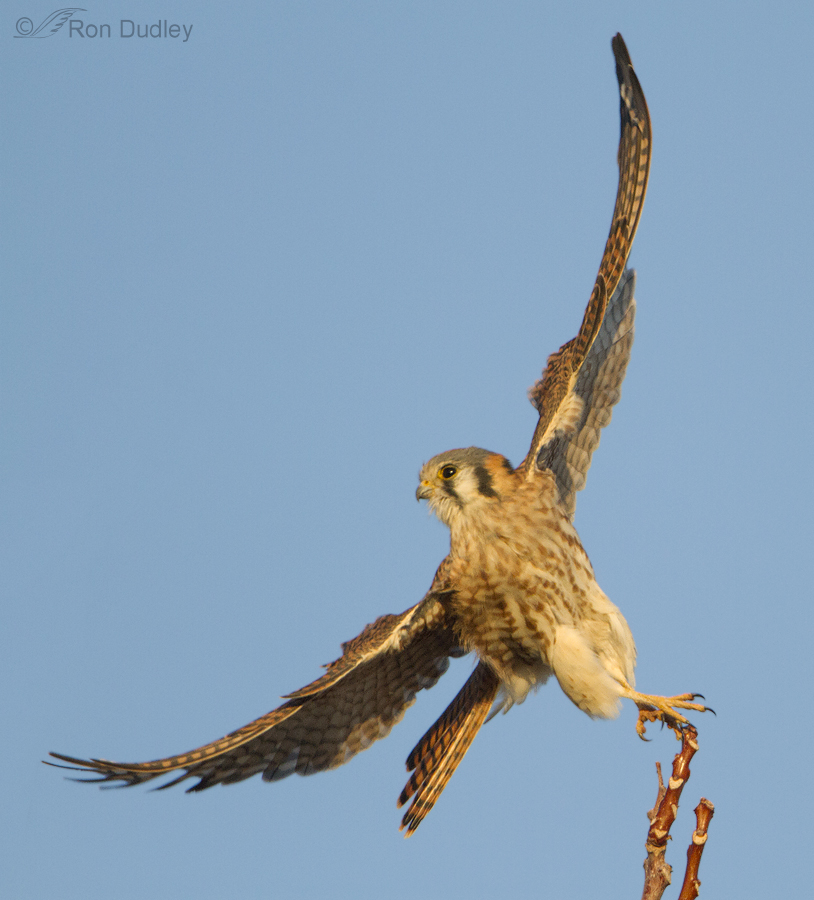
Occasionally during take-off an American Kestrel will put on a show of its considerable acrobatic skills but it happens so fast with these little falcons that many of us don’t really appreciate the coordination and skill involved. Yesterday morning I got one shot that I think demonstrates it pretty well.
A Shot I’ve Been After For A Long Time…
Northern Harrier Showing Food Source Adaptability
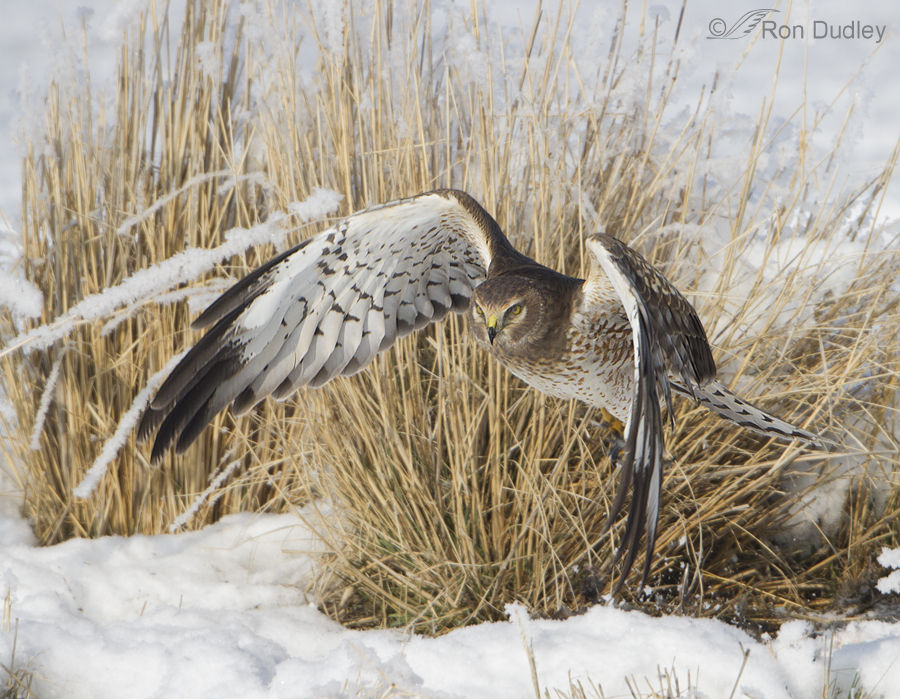
Last winter Northern Harriers really struggled to survive here in northern Utah. For several months it was bitter cold with a thick layer of snow on the ground which made it close to impossible for our wintering raptors (including Barn Owls) to find and catch their typical prey – voles. So harriers were forced to look for other food sources, including small birds. Songbirds are relatively scarce here that time of year but this harrier got lucky.
A Goofy-looking Red-tailed Hawk
Rough-legged Hawk Flying Into The Wind
A Different Look At The Alula (bastard wing)
Rust On Rust – Female American Kestrel
Male Harrier In Flight On A Four Layered Background
Rough-legged Hawk In A Frosty Wonderland

During winter, photography in the valley of the Great Salt Lake can be difficult at best due to frequent inversions that trap fog and smog in the low-lying areas and that especially includes the marshes near the lake. These inversions often last for days or even weeks and the fog and smog get progressively worse each day. But the fortunate result for photographers is the thick hoarfrost that blankets everything in the vicinity of the lake if and when the fog burns off during the day.
Dark Morph Rough-legged Hawk
A Red-tailed Hawk And Opportunities Missed
Rough-legged Hawk Hunting Technique

Like some other buteos, depending on conditions the Rough-legged Hawk may hunt from the air using flapping/gliding flight or from an elevated perch but their tendency to hunt in flight goes up significantly with increasing wind speed. This makes sense because hovering in the wind requires less energy than flapping flight.
Juvenile Red-tail Scratching An Itch In Flight
Northern Harrier Flight Sequence

Eight days ago I photographed a Northern Harrier as it flew toward me at an angle and then banked away. The following day, because of time constraints and computer issues I posted only a single shot of the banking maneuver but now I wish I had posted the entire flight sequence of four images. With your indulgence for posting the same image twice I’ll do just that this morning.
Female Kestrel – A Twisting, Turning Take-off

Occasionally during take-off an American Kestrel will put on a show of its considerable acrobatic skills but it happens so fast with these little falcons that many of us don’t really appreciate the coordination and skill involved. Yesterday morning I got one shot that I think demonstrates it pretty well.
A Shot I’ve Been After For A Long Time…
Northern Harrier Showing Food Source Adaptability

Last winter Northern Harriers really struggled to survive here in northern Utah. For several months it was bitter cold with a thick layer of snow on the ground which made it close to impossible for our wintering raptors (including Barn Owls) to find and catch their typical prey – voles. So harriers were forced to look for other food sources, including small birds. Songbirds are relatively scarce here that time of year but this harrier got lucky.


